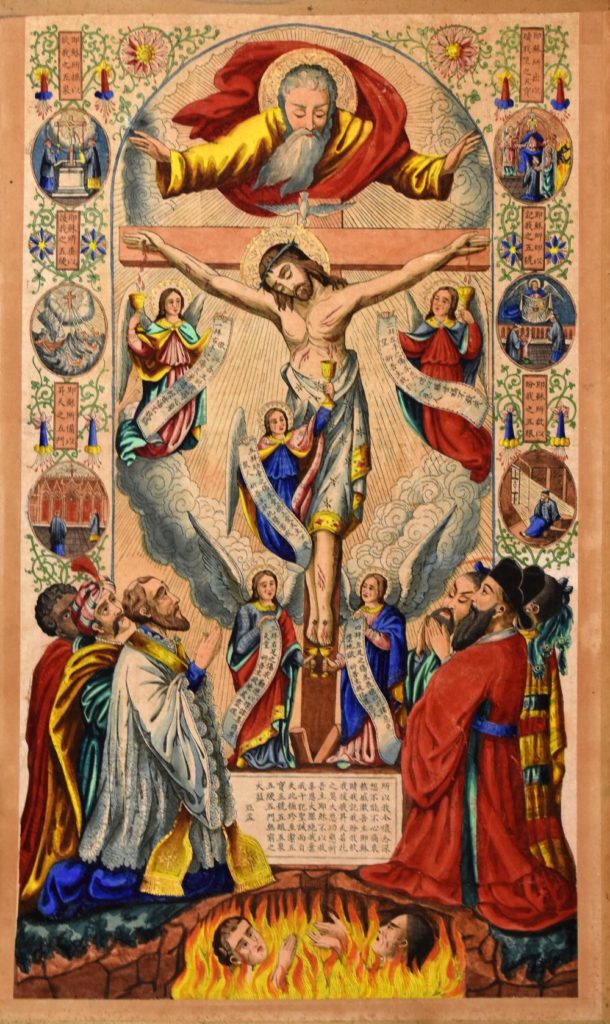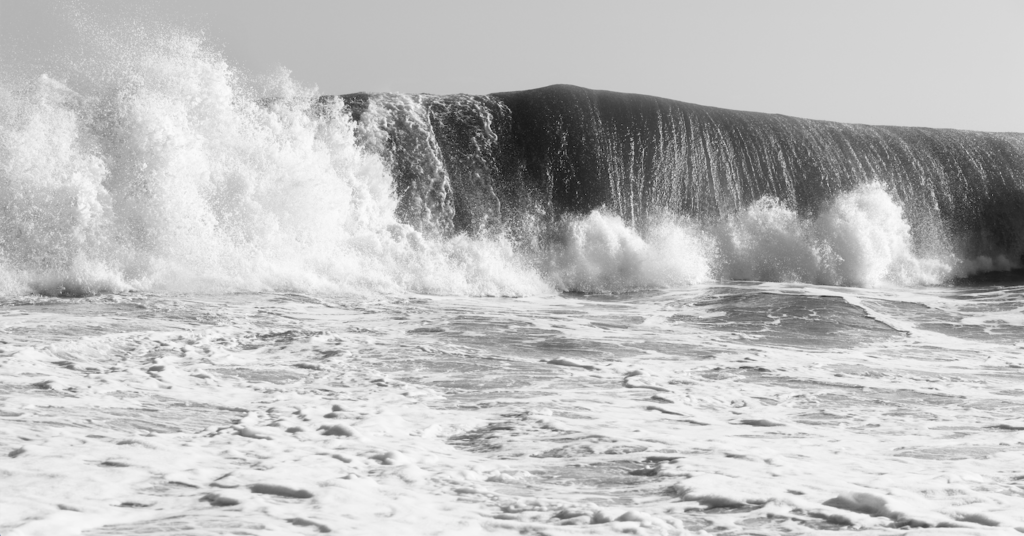She (Mary Margert of the Angels) took the habit, and then fell a prey to the temptation of despair, which has assailed some Saints; after this came a sense of dryness and desertion, which lasted for three years. She held out; she endured all the tortures of the Mystical Substitution, bearing the most painful and repulsive diseases to save souls. The Lord vouchsafed at last to intermit the penitential task of suffering. He allowed her to breathe, and the Devil took advantage of this lull to come upon the scene.
He appeared to her under the most hostile and monstrous form, breaking everything, and vanishing in a trail of pestilential vapors. Meanwhile a good man, one Sylvester Lindermans, had determined to found a Carmel on an estate he possessed at Oirschot, in Holland. As is ever the case when a convent is to be established, tribulations abounded. It seemed, in fact, that the time was ill-chosen for transferring the Sisters to a town in arms against the Catholics, across a country infested by bands of armed Protestants. When the Mother Superior selected Marie Marguerite to go forth and found this new House, she entreated to be left to pray in peace in her little nook; but Jesus interposed, commanding her to depart. She obeyed; exhausted, sick, and worn out, she dragged herself along the roads, and at last arrived, with the Sisters accompanying her, at Oirschot, where she organized the Convent as best she might in a house which had never been intended to serve as a nunnery.
………
Her health grew worse and worse. Added to the rheumatism, which crippled her, she had pains in the stomach, which nothing could relieve. Sciatica was presently engrafted on this flourishing stock of torments, and dropsy, a common disease in cloisters of austere rule, supervised.
Her legs swelled and refused to carry her; she lay helpless on her bed. The Sisters who nursed her now discovered a secret which she had always kept, out of humility; they perceived that her hands were pierced with red holes surrounded by a blue halo, and that her feet, also pierced, lay of their own accord, unless they were held down, one above the other, in the position of Christ’s feet on the cross. At last she confessed that many years before Jesus had marked her with the stigmata of the Passion, and that the wounds burnt night and day like red hot iron.
Her sufferings constantly increased. Feeling that this time she was dying, she grieved over the pitiless macerations she had used, and with touching artlessness begged forgiveness of her poor body for having exhausted its strength, and so having perhaps hindered it from living to suffer longer.
And she then put up the most strangely fragrant, the most wildly extravagant prayer that ever a Saint can have addressed to God.
She had so loved the Holy Eucharist, she had so longed to kneel at His feet and atone for the outrages inflicted on Him by the sins of mankind, that she waxed faint at the thought that after her death what would remain of her could no longer worship Him.
The idea that her body would not rot in uselessness, that the last handfuls of her miserable flesh would decay without having served to honor the Savior, broke her heart; and then it was that she besought Him to suffer her to melt away, to liquefy into an oil which might be burnt before the tabernacle in the lamp of the sanctuary.
And Jesus vouchsafed to her this excessive privilege, such as the like is unknown in the history of the Saints; and at the moment when she died she enjoined her daughters to leave her body exposed in the chapel, and unburied for some weeks.
On this point there is abundant authentic evidence. More or less minute inquiries were made, and the reports of medical experts as so precise that we can follow from day to day the state of the corpse until it had turned to oil and could be preserved in phials from which to feed the wick of a lamp hanging near the altar.
When she died—then aged fifty-two, having lived as a nun for thirty-three years, and fourteen as Superior of Oirschot—her face was transfigured, and in spite of the cold of a winter when the Scheldt could be crossed in a carriage, her body remained soft and pliable; but it swelled. Surgeons examined it and opened it in the presence of witnesses. They expected to find the stomach filled with water, scarcely half a pint was removed, and the body did not collapse.
This autopsy led to the incomprehensible discovery in the gall-bladder of three nails with black heads, angular and polished, of an unknown metal; two weighed as much as half a French gold crown, within seven grains; the third, which was a large as a nutmeg, weighed five grains more.
The operators then filled up the intestines with tow soaked in wormwood, and sewed the body up again with a needle and thread. And during and after these proceedings not only did the dead nun give out no smell of putrefaction, but, as in her lifetime, she diffused an ineffable and exquisite perfume.
Nearly three weeks elapsed; boils formed and broke, giving out blood and water for more than a month; then the skin showed patches of yellow; exudation ceased and oil came out, at first white, limpid, and fragrant, afterwards darker and of about the color of amber. It filled more than a hundred phials, each containing two ounces, several of them being still preserved in the Carmels of Belgium; and her remains when buried were not decomposed, but had assumed the golden-brown color of a date.
‘The Cathedral’ by J.K. Huysmans






Recent Comments